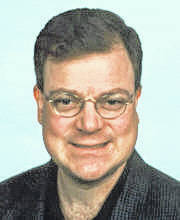On Sept. 11, 2001, I was driving along the Beltway to a Falls Church, Va., office building when a radio announcer said a plane had flown into the North Tower of the World Trade Center in New York City.
“What a horrible accident,” I remember thinking.
I was doing communications work for a big technology company. I parked my car and just as I was getting situated in my cubicle inside the office building, I heard the television blaring in my client’s office.
He told me a second plane had flown into the South Tower of the World Trade Center. Soon, we learned that a third plane had flown into the Pentagon.
We took the elevator to the top floor with several others. Only 9 miles from the Pentagon, we could see smoke billowing into the sky.
Radios and TVs were turned up. Local announcers were relaying reports of additional attacks, many of which would turn out to be untrue.
Dulles International Airport was under attack? Reagan National Airport? The White House? The Capitol? How many more hijacked planes were out there? Where would they strike next?
It was total chaos. Here I was in an impersonal office building as people cried, called loved ones, even prayed aloud.
We all experienced the horrific events of 9/11 in different ways and there was nothing special about my experience – except that I was living in the Washington, D.C., region when it happened.
Lucky for me, I had been regularly attending St. Joseph’s Catholic Church in Alexandria, Va.
A small church in a rapidly gentrifying area, its mostly black congregation can be described in one word: cheerful.
The first and third Sundays of every month, a 30-person choir belts out gospel music that would fill even the most cynical among us with hope and joy.
Father McBready, an Irishman of the Josephite order, was the pastor there in 2001. His Irish lilt and wit produced many uplifting sermons – none more uplifting than on the first Sunday after the attack.
The church was packed that morning, all of us feeling the same inability to comprehend the violence inflicted on so many innocents.
Father McBready began his sermon by telling us about a wonderful woman whose marriage he had presided over a few years before. She and her husband recently had been blessed with a son – and both she and her son were aboard one of the planes that struck the World Trade Center.
He said that in the midst of such sadness, however, there is hope: Tragedy reduces us to our most basic selves, helping us renew our efforts to lead virtuous lives. It helps us escape the narrowness of ourselves to join together with others to help those in need.
After the choir sang joyously, 200 people held hands and prayed as one. Filled with a renewed sense of hope, we were eager to do something, anything, to help our neighbors in need – donate funds, make sandwiches for first responders at the Pentagon, volunteer our time, etc.
It’s been 17 years since the 9/11 tragedy. We appear to be a divided, cynical people, but I don’t buy it.
God forbid such an alarming event ever happens in America again. But if it does, millions of Americans from every walk of life will come together as one to help our neighbors in need.
Just as we did after 9/11.


